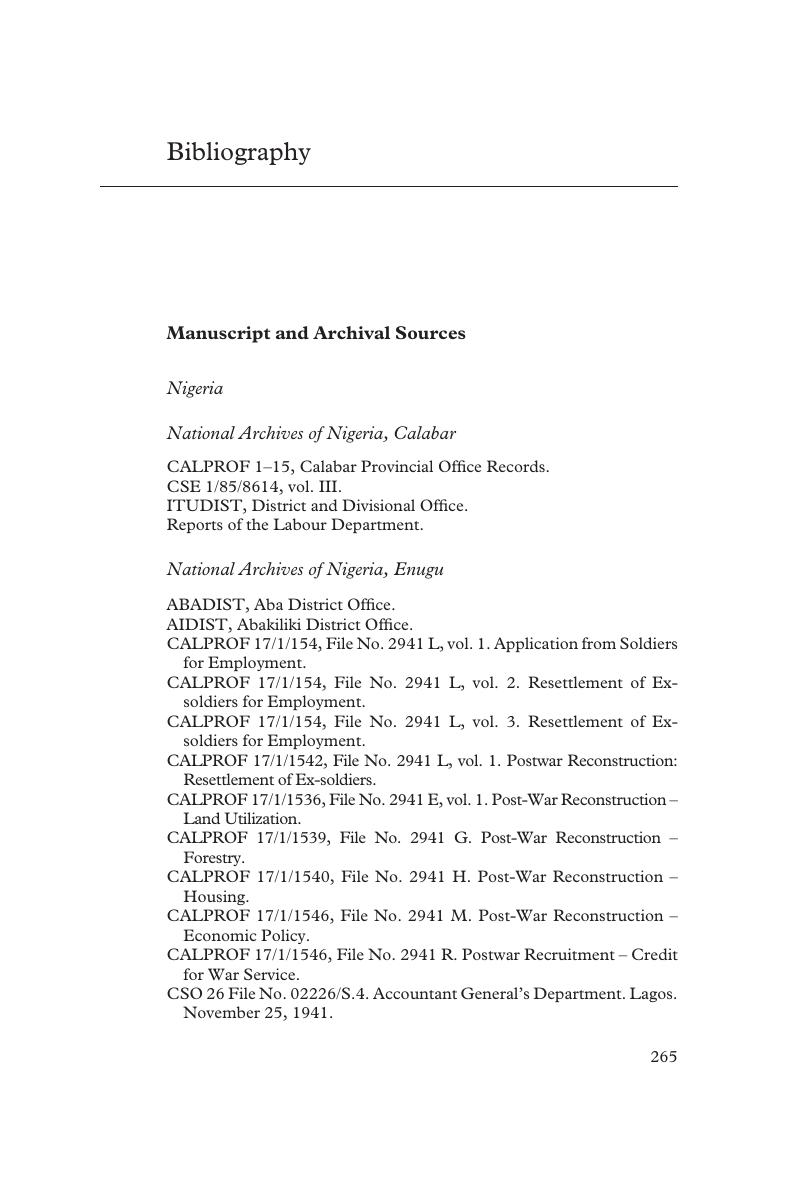Book contents
Bibliography
Published online by Cambridge University Press: 05 March 2020
Summary

- Type
- Chapter
- Information
- Nigeria and World War IIColonialism, Empire, and Global Conflict, pp. 265 - 286Publisher: Cambridge University PressPrint publication year: 2020

